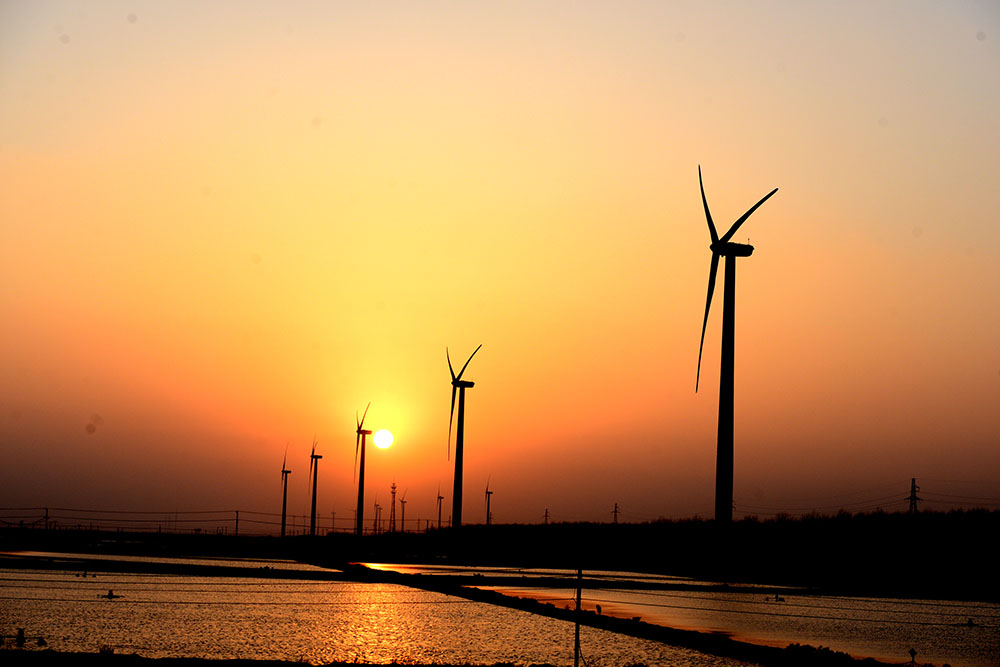Media Report

- The Guardian reports: "China will plough 2.5tn yuan (£292bn) into renewable power generation by 2020, the country's energy agency has said, as the world's largest energy market continues to shift away from dirty coal power towards cleaner fuels. The investment will create more than 13m jobs in the sector, the National EnergyAdministration said in a blueprint document that lays out its plan to develop the nation's energy sector during the five-year 2016 to 2020 period. The NEA said installed renewable power capacity including wind, hydro, solar and nuclear power would contribute to about half of new electricity generation by 2020. The agency did not disclose more details on where the funds, which equate to about £58bn each year, would be spent. Still, the investment reflects Beijing's continued focus on curbing the use of fossil fuels, which have fostered the country's economic growth over the past decade, as it ramps up its war on pollution."
- The New York Times reports: "Apple, complying with what it said was a request from Chinese authorities, removed news apps created by The New York Times from its app store in China late last month. The move limits access to one of the few remaining channels for readers in mainland China to read The Times without resorting to special software. The government began blocking The Times's websites in 2012, after a series of articles on the wealth amassed by the family of Wen Jiabao, who was then prime minister, but it had struggled in recent months to prevent readers from using the Chinese-language app...'For some time now the New York Times app has not been permitted to display content to most users in China and we have been informed that the app is in violation of local regulations,' Fred Sainz, an Apple spokesman, said of the Times apps...The regulations say apps cannot 'engage in activities prohibited by laws and regulations such as endangering national security, disrupting social order and violating the legitimate rights and interests of others.' "
- Quartz comments: "Welcome to the new world order. After years of liberalization, globalization is in retreat. Populist political victories and backroom deals to strongarm encourage firms to keep manufacturing jobs at home are our new realities...In the US, politicians advocating for less trade and less immigrant labor frequently ignore a far bigger force for the economy to reckon with: technology, which has killed enormous numbers of routine, low-skill jobs over the last 20 years (It also created new jobs for skilled workers, so the net effect has been little change in employment levels.)...Now that China is getting richer its labor is more expensive. Currency manipulation for the purpose of boosting exports will be more expensive, and undesirable, to maintain. And there's already evidence of jobs coming back to the US or going to countries with even cheaper labor costs than China...[However,] attempts to preserve what we have, through tariffs and other kickbacks, are expensive and generally for naught. The money would be better spent helping people who are displaced and assisting the next generation in finding their place in the new economy."
Calendar
- 2017-01-04 With Choice of Trade Negotiator, Trump Prepares to Confront Mexico and China
- 2017-01-03 Wilbur Ross’s Chinese Love Affair
- 2017-01-02 Surge in Chinese corporate investment into the US
- 2016-12-23 In China's Tiny Catholic Community, Hopes Rise For Beijing-Vatican Ties
- 2016-12-22 Trump taps China trade critic Navarro for new White House post
- 2016-12-21 On China: A Conversation With Larry Summers
- 2016-12-20 Smog Chokes Chinese Cities, Grounding Flights, Closing Roads
- 2016-12-19 Donald Trump’s Shock Doctrine Will Make China Even Stronger
- 2016-12-18 Tensions Linger Over Seizure of Survey Drone in South China Sea
- 2016-12-16 Japan Dethrones China as Top U.S. Foreign Creditor
News
- The New York Times Apple Removes New York Times Apps From Its Store in China
- The Guardian China to invest £292bn in renewable power by 2020
- Reuters UK, China, South Africa downgrade calls loom for Moody's
- The New York Times China, Seeking to Stop Weakening of Currency, Issues Restrictions
- BBC Apple pulls New York Times app from China app store
- The Wall Street Journal Chinese Willing to Pay for Trustworthy Web Content
- The Wall Street Journal Humans Mourn Loss After Google Is Unmasked as China's Go Master
- Bloomberg China Will Curb 'Irrational' Soccer Spending, Government Says
- The Associated Press Gas outburst in central China coal mine kills 5, traps 7
- The Financial Times China turns screw on corporate South Korea over US missile shield
- Bloomberg China's Epic Short Squeeze Is Back as Yuan Rally Crushes Bears
- The Financial Times High land prices drive China property M&A spurt
- Reuters World stocks hit 1-1/2 year high after strong China data
Commentary
- Quartz Technology killed manufacturing jobs; trade is what will bring their replacement
- Foreign Policy Lessons for the South China Sea From International Experience in the Arctic
- The Diplomat No, China Did Not Target a US Carrier With Ballistic Missiles Last Summer
- Foreign Policy All Aboard China's 'New Silk Road' Express
- The National Interest A Nixon Strategy to Break the Russia-China Axis
- Forbes Led by Alibaba Group, More Chinese Investment Continues To Flow Into Indian Startups
- Fortune Here's How Much Money China Is Throwing at Renewable Energy